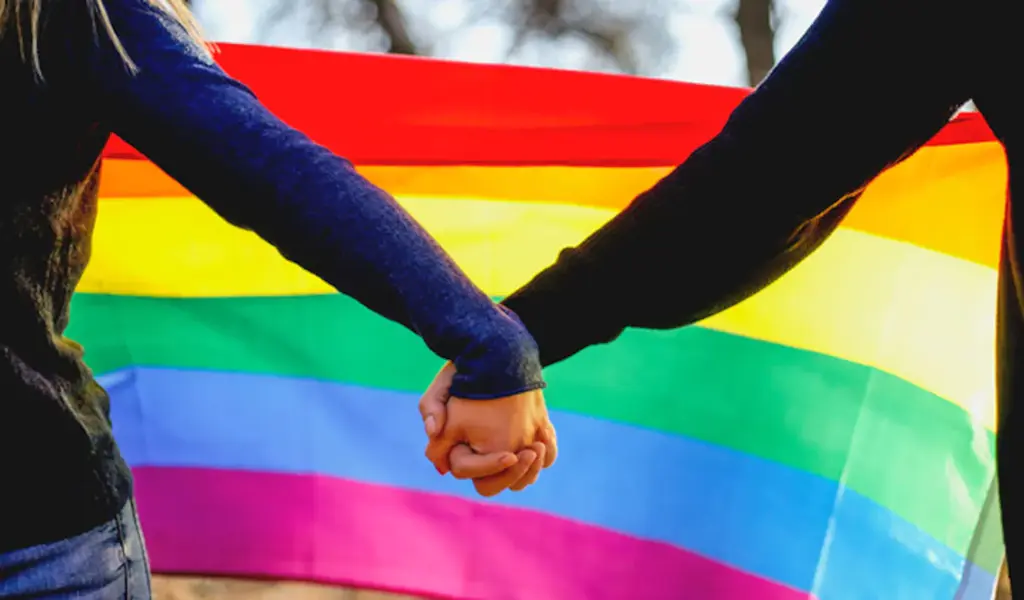Health
LGBTQ+ Mental Health: Challenges and Resources

(CTN News) – Mental health is a significant aspect of our overall well-being, affecting every aspect of our life, including relationships, work, and daily routine.
Individuals who identify as LGBTQ+ Mental Health may face unique challenges that can affect their mental health.
This article aims to explore the challenges faced by the LGBTQ+ community and the resources available to support their mental health.
Understanding LGBTQ+ Terminology
Before discussing the mental health challenges faced by the LGBTQ+ community, it is essential to understand the terminology used within the community.
LGBTQ+ stands for Lesbian, Gay, Bisexual, Transgender, and Queer or Questioning, and the “+” refers to other identities that fall under the umbrella of the LGBTQ+ community, including intersex, asexual, and non-binary.
LGBTQ+ Mental Health Challenges
Despite significant progress in LGBTQ+ rights, many individuals who identify as part of the community still face unique challenges that can negatively impact their mental health.
Stigma and Discrimination
Stigma and discrimination based on sexual orientation and gender identity can result in negative experiences, such as harassment, bullying, and even violence, leading to anxiety, depression, and PTSD. For instance, LGBTQ+ individuals may feel the need to hide their identity, leading to isolation and difficulty forming intimate relationships.
Social Isolation and Rejection
Social isolation and rejection can also lead to negative mental health outcomes, with LGBTQ+ individuals often experiencing loneliness and lacking support from family and friends.
This lack of support can be particularly challenging for individuals who have recently come out and are experiencing rejection or hostility from loved ones.
Minority Stress
Minority stress is a unique type of stress experienced by individuals from marginalized communities, including LGBTQ+ individuals, due to ongoing experiences of discrimination and stigma.
This type of stress can lead to increased anxiety, depression, and other mental health disorders.
Internalized Homophobia and Transphobia
Internalized homophobia and transphobia refer to internalizing negative beliefs and attitudes toward oneself due to societal norms and values.
This can lead to self-hatred, shame, and internal conflict, resulting in poor mental health outcomes.
Intersectionality and Mental Health
Intersectionality refers to how different forms of oppression, including racism, sexism, and homophobia, intersect to create unique challenges for individuals from marginalized communities.
For instance, transgender women of color may experience discrimination and violence due to their gender identity and race.
Racism and Mental Health
Racism can significantly impact the mental health of individuals from marginalized communities.
LGBTQ+ individuals who also identify as a person of color may experience racism and homophobia simultaneously, leading to increased stress and anxiety.
Transphobia and Misogyny
Transphobia and misogyny can also significantly impact the mental health of transgender individuals, particularly transgender women.
These forms of oppression can result in experiences of violence, harassment, and discrimination, leading to negative mental health outcomes.
LGBTQ+ Mental Health Resources
Fortunately, resources are available to support the mental health of LGBTQ+ individuals. Here are a few examples:
Therapy and Counseling
Therapy and counseling can provide a safe and supportive space for LGBTQ+ individuals to discuss their challenges with a trained mental health professional.
It is essential to find a therapist or counselor who is LGBTQ+ affirming and has experience working with LGBTQ+ clients.
Support Groups and Communities
Support groups and communities can provide a sense of belonging and connection for LGBTQ+ individuals.
These groups can be in-person or online and provide opportunities to share experiences, receive support, and connect with others with similar experiences.
Online Resources and Apps
Several online resources and apps are available to support the mental health of LGBTQ+ individuals. These include websites like the Trevor Project, which provides crisis intervention and suicide prevention services to LGBTQ+ youth, and apps like Calm and Headspace, which provide meditation and mindfulness resources to support mental health.
LGBTQ+ Mental Health Allies
LGBTQ+ mental health allies support and advocate for the mental health needs of LGBTQ+ individuals. Here are a few examples:
Mental Health Professionals
Mental health professionals, including therapists and counselors, can be LGBTQ+ allies by creating a safe and supportive space for LGBTQ+ clients and using LGBTQ+ affirmative approaches in their practice.
Friends and Family
Friends and family members can be LGBTQ+ allies by being supportive, understanding, and accepting of their loved ones’ sexual orientation and gender identity.
It is also essential to educate oneself on LGBTQ+ issues and be willing to have open and honest conversations about mental health.
LGBTQ+ Organizations and Advocacy Groups
LGBTQ+ organizations and advocacy groups play a vital role in supporting the mental health needs of the LGBTQ+ community.
These organizations provide resources and support to individuals, raise awareness of LGBTQ+ issues, and advocate for LGBTQ+ rights and mental health.
Conclusion
In conclusion, LGBTQ+ individuals may face unique challenges that can negatively impact their mental health, including stigma, discrimination, and social isolation.
It is essential to understand these challenges and the impact they can have on mental health.
However, resources and allies are available to support the mental health needs of LGBTQ+ individuals. By being aware of these resources and being an LGBTQ+ ally, we can support the mental health and well-being of the LGBTQ+ community.
Related CTN News:
Thailand’s LGBTQ Couples Push for Same-Sex Marriage on Valentine’s Day
















![Play Online Blackjack In Australia [2024]: Top 10 Online Australian Blackjack Sites 15 Play Online Blackjack in Australia [2024]: Top 10 Online Australian Blackjack Sites](https://www.chiangraitimes.com/wp-content/uploads/2024/03/word-image-303235-1-80x80.jpeg)













